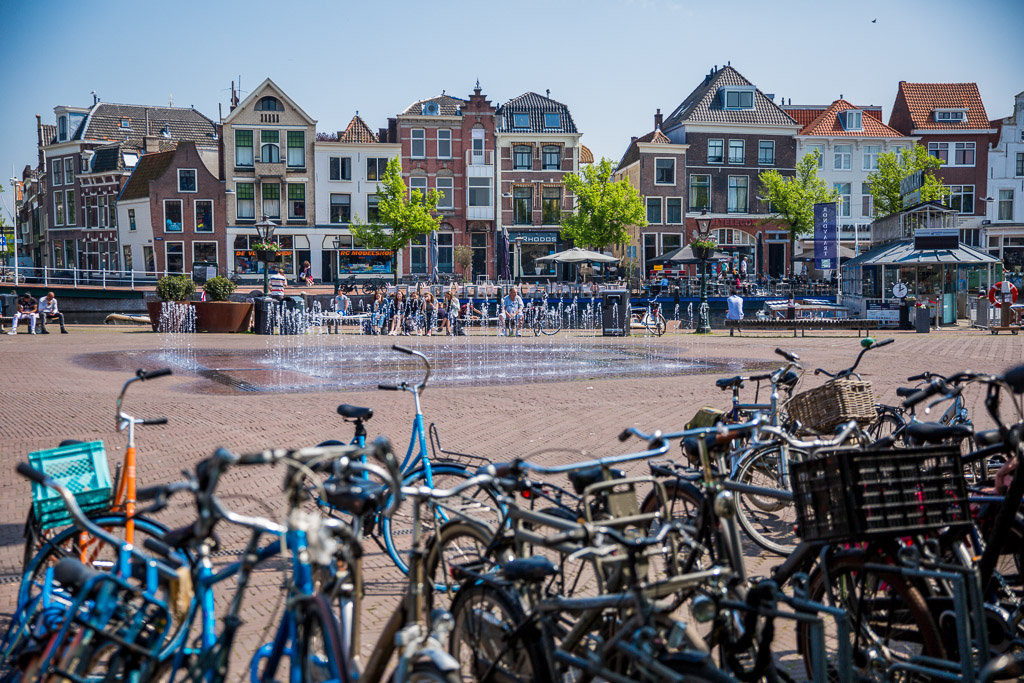
Chemical Engineering
Bachelor

How can we produce sustainable materials on a large scale? Can we turn CO₂ into valuable products? How do we make factories safer, cleaner, and more efficient? Are you excited by the idea of combining chemistry, engineering, and innovation? Then Chemical Engineering at the University of Groningen is the programme for you.
What to expect from the Bachelor's programme in Chemical Engineering✔ Study core topics like thermodynamics, process design, and catalysis
✔ Combine chemistry with engineering to tackle real-world solutions
✔ Design and optimize processes for producing chemicals, fuels, food, pharmaceuticals, and advanced materials
✔ Work on sustainable technologies in energy, health, and the environment
Chemical engineers translate molecular science into industrial innovation. In this international Bachelor's programme, you'll learn to design and optimize large-scale chemical processes to develop new materials and create cleaner, more efficient technologies. From renewable fuels to smart polymers, you'll gain the skills to shape a sustainable future.
Most of the first year is shared with the Chemistry programme, so you get a broad foundation before specializing in your second year — ideal if you're still deciding between chemistry and chemical engineering. You'll also explore how chemical engineers think beyond the lab: considering cost, safety, scalability, and envi
Ready to apply?
Visit course websiteLanguage
English
Title
Bachelor of Science
Duration
3 years
ECTS credits
ECTS
The European Credit Transfer and Accumulation System (ECTS) is a student-centred system based on the student workload required to achieve the objectives of a programme of study. Its aim is to facilitate the recognition of study periods undertaken by mobile students through the transfer of credits. The ECTS is based on the principle that 60 credits are equivalent to the workload of full-time student during one academic year.
Accreditation
Tuition fee 2025/2026
EU/EEA
The EU/EEA rate is the regular fee for students from within the EU/EEA.
€ 2,601
Non-EU/EEA
The non-EU/EEA rate is the rate for students from outside the EU/EEA.
€ 19,800
Institutional
The institutional rate is for all students who have already obtained a bachelor’s or master’s degree and who want to start a second programme leading to a degree at the same level or at a lower level.
€ 13,500
Admission
Admission URL
Application requirements
Language proficiency certificate for English (except for applicants with a Dutch pre-university education (VWO) as well as the exemptions listed on the language exemptions webpage). More info: https://www.rug.nl/fse/programme/admissions/bsc/language
Check when you can start and what you have to pay!
| Tuition fees | |
|---|---|
| € 2,601 | |
| € 19,800 | |
| € 13,500 |
| Tuition fees | |
|---|---|
| € 2,695 | |
| € 19,800 | |
| € 14,000 |
| Start date | App. deadline EU/EEA | App. deadline Non-EU/EEA |
|---|---|---|
| 1 Sep '26 | 1 May '26 | 1 May '26 |
| 1 Sep '27 | 1 May '27 | 1 May '27 |
Contact
Main addressBroerstraat 5
9712 PC Groningen
050-3638100
Ready to apply?
Visit course website
